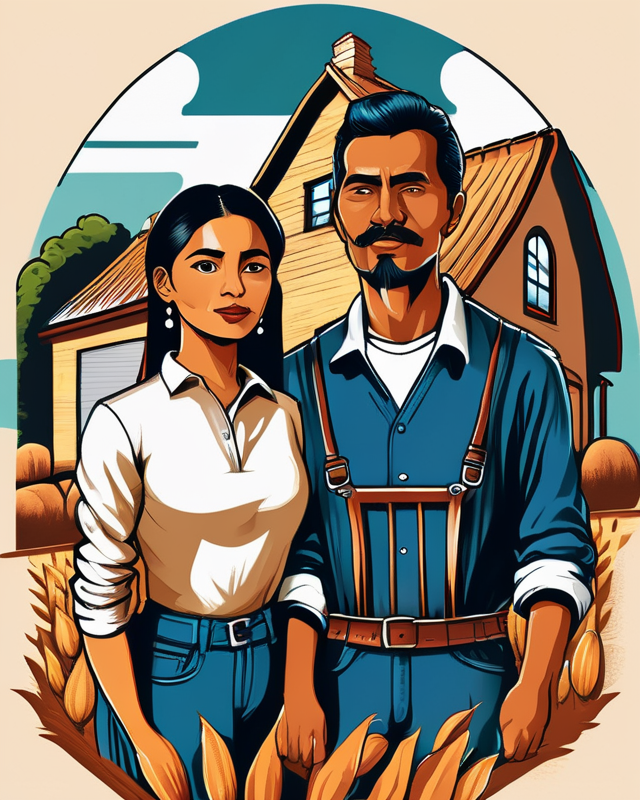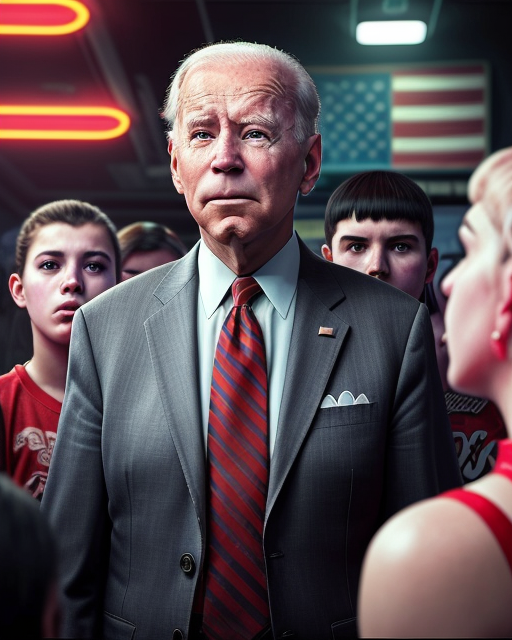 Samuel Sonora Samuel Sonora Let's talk about something that's been on my mind for a while: reparations for Chicanos. We're not just talking about a few bucks here and there. Nah, we're talking about addressing centuries of injustice and making things right for our people. First off, let's rewind to history class. Remember learning about how Texas, New Mexico, Arizona, California, and parts of other states weren't just empty land waiting to be claimed? Yeah, they were our ancestral lands, inhabited by Indigenous peoples and settled by Mexicans. But then along came the U.S., with their wars and treaties, and suddenly we got stripped of our land faster than you can say "manifest destiny" The Treaty of Guadalupe Hidalgo? Yeah, that was supposed to protect our rights and property, but it ended up being a raw deal for us. Promises broken, land stolen—sound familiar? And let's not forget about how we've been treated as a workforce. From agriculture to mining to building railroads, we've been the backbone of this country's economy for centuries. But instead of getting fair wages and decent working conditions, we've been exploited, plain and simple. Low pay, dangerous jobs, no legal protections—yeah, we've seen it all. But here's the kicker: every election cycle, politicians start fearmongering about immigration, and who do they scapegoat? You guessed it—Chicanos (or Mexicans, or Central Americans, or South Americans, or any brown person--they really don't care about making distinctions). Suddenly, we're criminals, we're stealing jobs, we're a threat to national security. It's like clockwork, and it's getting old real fast. So, why reparations? Because it's time to set things right. It's not just about the money (although that would definitely help). It's about acknowledging the wrongs that have been done to us, and making amends. It's about recognizing our contributions to this country and giving us the respect we deserve. Reparations are about more than just writing a check. They're about justice, plain and simple. It's about holding the powers that be accountable for the harm they've caused and taking steps to make things right. And yeah, it's long overdue. So, let's stop beating around the bush and start talking about real solutions. Reparations for Chicanos—it's time to make it happen. About the Author
Samuel Sonora is a Chicano writer, father, and son of Mexican immigrants. He has recently retired and is focused on spending time with his family and grandkids, as well as writing poetry. He hopes to publish a book at some point in the near future. GET PUBLISHED! Are you a writer, thinker, philosopher, person with thoughts and the ability to create a Word document containing a post in the range of between 300 and 600 words in length? If you submit your post, we can publish it here on TRiP Wire, the official blog of The Raving Press. Click here to see our GUEST BLOGGER Submission Guidelines. (The views and opinions expressed by guest bloggers are not necessarily those of The Raving Press, TRiP Wire, its editors, or affiliate entities.)  Alex Christoph Alex Christoph It's election season, and you know what that means...all out reversal of our social standards in service of political pursuits. Critiques of President Biden's age have sparked important discussions around ageism and its potential to become a slippery slope toward problematic societal issues such gender equality, and racial biases. While it's essential to examine the dynamics of ageism in political discourse, it's equally crucial to dissect the broader implications of such criticisms and their potential alignment with regressive attitudes towards gender, race, and minority groups. First off, let's address the criticism of President Biden's age. It's undeniable that ageism exists in various facets of society, including politics. Critics often cite Biden's advanced age as a concern regarding his ability to effectively lead the nation, make sound decisions, and keep up with the demands of the presidency. However, it's essential to distinguish between legitimate concerns about a leader's capacity and unjustified biases based solely on age. Critiquing Biden's age should not automatically equate to ageism. It's reasonable to scrutinize any leader's competency, regardless of their age. However, the manner in which these critiques are framed and the underlying assumptions they carry can perpetuate ageist stereotypes. Rather than solely focusing on age, discussions should center on a leader's policies, actions, and vision for the future. Now, let's delve into the broader implications of ageism and its intersectionality with other forms of discrimination, such as sexism and racism. Criticisms of Biden's age can intersect with antiquated beliefs about gender and race, leading to harmful stereotypes and biases. For instance, reverting to old-fashioned thinking about women being the weaker sex can manifest in subtle ways when critiquing Vice President Kamala Harris, who holds a prominent position in the Biden administration. Dismissing her leadership capabilities or subjecting her to harsher scrutiny based on gender stereotypes undermines the progress towards gender equality. Similarly, questioning the intelligence or competency of minorities within the administration echoes historical prejudices that have long perpetuated systemic inequalities. It's imperative to recognize and challenge these biases to foster a more inclusive and equitable society. It's easy to see where these criticisms usually stem from. There are two prominent political forces in our country. One tends to side with inclusion, sensitivity towards others' "differentness," and equality. They may not always achieve these goals, but at least these are targets that they aim for. While on the other side of the political spectrum, there seems to be a push toward returning society toward the ways of the past, when people weren't so damn sensitive about being made to feel shame for simply being themselves. The strange and unexpected point of convergence can be seen in what is happening today with seemingly both sides piling on Biden regarding his age. Is he old? Sure. Does he makes plenty of old, grandpa gaffes? Of course--'cuz he's old! But has he shown seriously concerning behavior that implicates a complete dysfunctionality? Nope. And yet even progressive outlets are trashing the guy because of his age. It seems clear that a reason that the two opposing political forces are converging on this one point of criticism of the current president is because it serves as a convenient tool to attempt to dislodge him as the candidate to take on Trump. But in joining in this political tactic, progressives might be helping to undo what has taken generations to achieve: a culture that seems to be inching closer to the acceptance of people on the content of their character and not the characteristics of their skin. Be it the skin of a person of color, that of a woman, or that of an senior citizen. Critiquing President Biden's age should prompt us to reflect on broader issues of ageism, sexism, and racism within our society. While it's essential to hold leaders accountable, criticisms must be rooted in substantive concerns rather than perpetuating stereotypes or biases. By challenging ageist attitudes and promoting inclusivity, we can move towards a more progressive and equitable future for all. About the Author
Alex Christoph is an Ohio writer and journalist in training. He has been published in his school newspaper and online on various web zines under various pen names. GET PUBLISHED! Are you a writer, thinker, philosopher, person with thoughts and the ability to create a Word document containing a post in the range of between 300 and 600 words in length? If you submit your post, we can publish it here on TRiP Wire, the official blog of The Raving Press. Click here to see our GUEST BLOGGER Submission Guidelines. (The views and opinions expressed by guest bloggers are not necessarily those of The Raving Press, TRiP Wire, its editors, or affiliate entities.) |
AuthorGabriel H. Sanchez is an author, poet, actor, editor, and publisher from the Rio Grande Valley in south Texas, on the border with Mexico. Gabriel is the author of "Once Upon a Bad Hombre," "The X Series," "The Martian Ones: Tales of Human Folly," and "The Fluid Chicano." You can read more about him and his other projects at gabrielhugo.com or on his Facebook page: @gabrielhugoauthor. Categories
All
Archives
June 2024
Fueled by RPM |



 RSS Feed
RSS Feed
